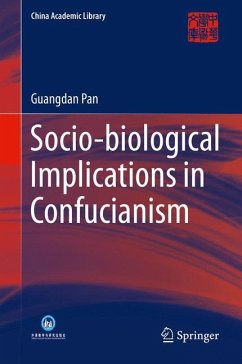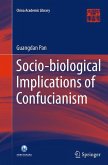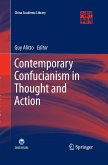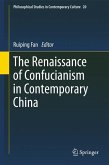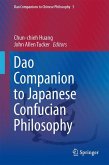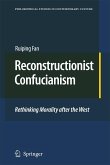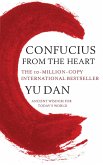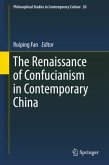This book is a collection of English articles by Pan Guangdan, one of China's most distinguished sociologists and eugenicists and also a renowned expert in education. Pan is a prolific scholar, whose collected works number some fourteen volumes. Pan's daughters Pan Naigu, Pan Naimu and Pan Naihe-all scholars of anthropology and sociology-began editing their father's published works and surviving manuscripts around 1978. The collected articles, written between 1923 and 1945, are representative of Pan's insights on sociobiology, ethnology and eugenics, covering topics such as Christianity, opium, domestic war and China-Japan relations.
The title of the book is taken from the fascinating two-part article "Socio-biological Implications in Confucianism", which essentially reworks Confucius as a kind of "forefather" of socio-biological and eugenic thinking, showing Pan's promotion of "traditional" values.
These articles, mostly published in Chinese Students' Monthly and The China Critic, offer an excellent point of entry into Pan's ideas on population and eugenics, his polemics on family and marriage, and his intellectual positioning and self-fashioning.
This collection is of great reference value, allowing readers to gain an overall and in-depth understanding of the development of Pan's academic thought, and to explore the spiritual world of the scholars brought together by The China Critic who were dedicated to rebuilding the Chinese culture and bridging the West and the East.
The title of the book is taken from the fascinating two-part article "Socio-biological Implications in Confucianism", which essentially reworks Confucius as a kind of "forefather" of socio-biological and eugenic thinking, showing Pan's promotion of "traditional" values.
These articles, mostly published in Chinese Students' Monthly and The China Critic, offer an excellent point of entry into Pan's ideas on population and eugenics, his polemics on family and marriage, and his intellectual positioning and self-fashioning.
This collection is of great reference value, allowing readers to gain an overall and in-depth understanding of the development of Pan's academic thought, and to explore the spiritual world of the scholars brought together by The China Critic who were dedicated to rebuilding the Chinese culture and bridging the West and the East.

